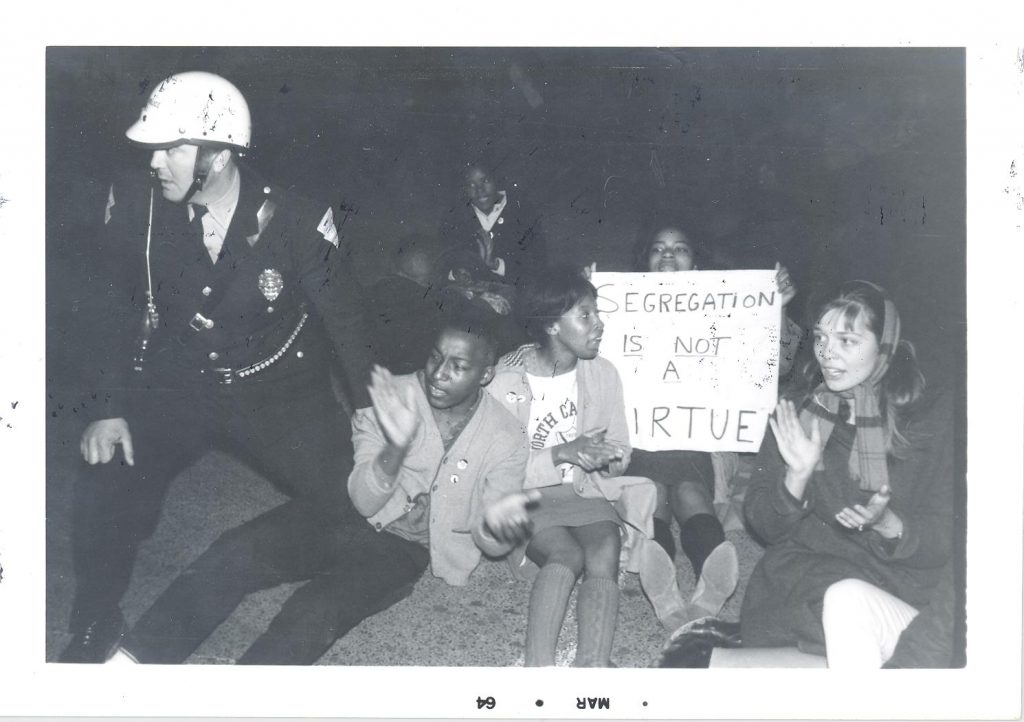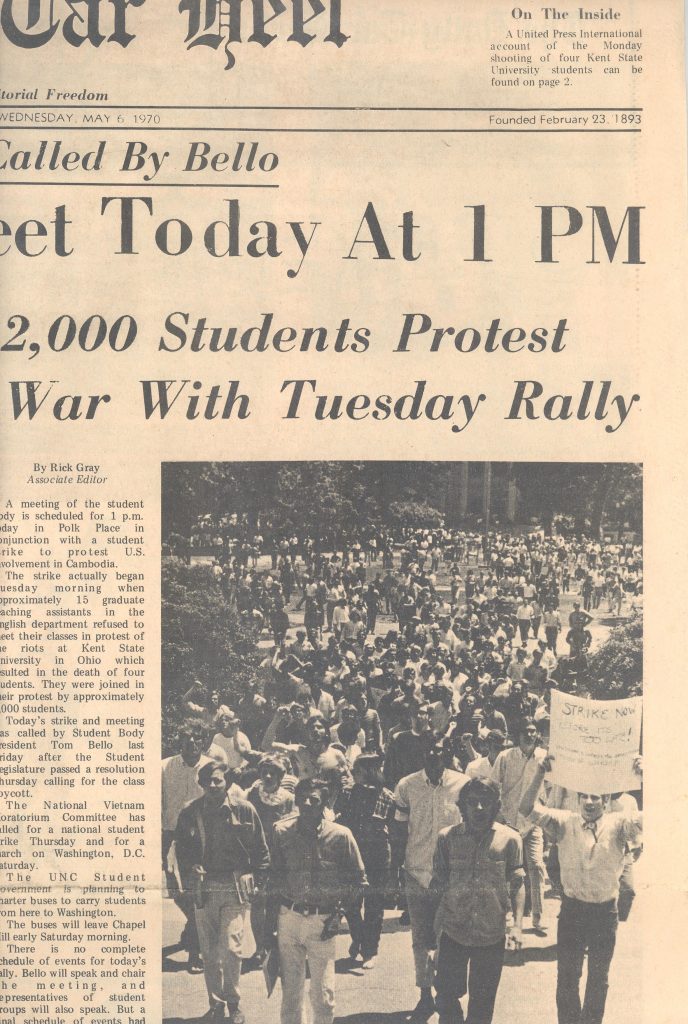Guest Poster: SHC Student Worker, James A. Moore (UNC Class of 2015)
From the eccentric monologues of the pit preacher, to the passionate Ferguson protest, to the somber vigil for Deah Barakat, Yusor Abu-Salha and Razan Abu-Salha, recent times have demonstrated UNC’s reputation of being a place which fosters free speech. When thinking about all the recent demonstrations which UNC has welcomed, it can be easy to forget that less than 50 years ago, UNC had come under fire for passing a law which banned certain speakers from speaking on campus. This law was known as “The Speaker Ban Law”


Not too unlike today, in the 1960s UNC Chapel Hill had become a hotspot for political activism. Racial tensions and the war in Vietnam inspired many UNC students to hold demonstrations on UNC’s campus. Concerned that these protests may be seen as harbingers for communism, the more conservative members of UNC’s Board of Trustees passed The Speaker Ban Law, which prevented any speakers who were even suspected of having communist ties from being permitted to speak on UNC’s campus.
Naturally, a considerable amount of UNC’s students and faculty spoke out against the Speaker Ban Law. From the UNC chapter of Students for a Democratic Society, to UNC Chancellor William Aycock, a whole wave of dissident voices took to the press to speak out against the law in the name of free speech.
Although not as conspicuous as some other responses against the ban, a particularly eloquent response came from one of UNC Chapel Hill’s peers, UNC Greensboro. On March 6, 1966, Chancellor Otis A. Singletary of UNC Greensboro delivered a scathing critique of UNC Chapel Hill’s ban, with various passages that we here at the SHC believe everyone in the academic community would do well to remember:

The controversial Speaker Ban Law was eventually lifted on February 19, 1968 due to vagueness. This allowed students to protest more freely on UNC’s campus. The clipping below is just one example of how engaged students can be when given the oppurtunity to bring speakers and express ideas freely on campus.

To read more of Chancellor Singletary’s timely defense of free speech at College Universities check out the Anne Queen Collection (collection #5214), see other materials related to student activism, and learn more about the Speaker Ban Law, pay a visit to the SHC! For even more context and detailed information about free speech at UNC, you should check out the digital exhibit curated by the Southern Historical Collection, North Carolina Collection, and University Archives.
